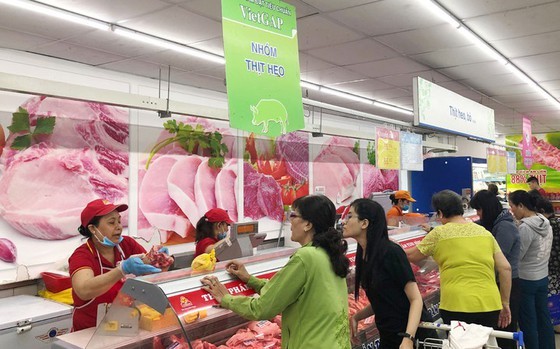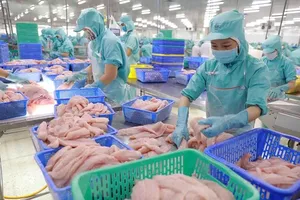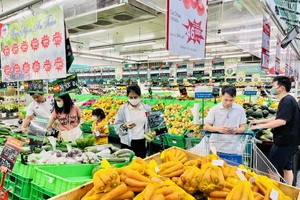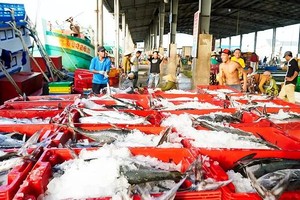
According to the latest statistics, around 5.5 million pigs were killed by the African swine fever. In the past nine months, pig farming was difficult due to concerns over the epidemic.
Reports by 56 cities and provinces showed that total pig herd across the country was at above 22 million pigs, down 16 percent compared to that in October last year. If including the figures of seven provinces which have not made reports, there are around 25 million pigs nationwide, enough to supply for the market. However, the prices of pork are still on the increase.
According to the ministry, luckily, there are still around 2.9 million sows, which are enough for rebuilding of pig herd.
Minister Nguyen Xuan Cuong asked farms and enterprises to apply biosecurity practices in pig farming so as to rebuild pig herd sustainably and avoid diseases. He said that the fourth quarter and the first quarter of next year are always the time of highest food consumption. The African swine fever has caused a shortage in supply of food, so the ministry has had policies to increase poultry flock and grass-fed cattle herd. Up to now, the country’s poultry flock rose 12 percent, grass-fed cattle herd surged 4.2 percent while seafood grew in both fishing and farming with production of 8 million tons.
With the structure of these three types of food, not only can a shortage of food caused by the African swine fever be made up but it also serves export.
As for rebuilding of pig herd after the epidemic, Minister Nguyen Xuan Cuong said that the solution is to increase pig herd at large, biosecurity-ensured pig farming area. Small and medium sized pig farming households must ensure factors of biosecurity before rebuilding their pig herds. At the same time, they should carry out overall solutions for seafood, poultry and cattle to provide food. The most important thing is to keep prices stable, not affecting the price index at the end of the year.
The ministry on October 17 held a conference ‘Increasing measures to control diseases and develop sustainable biosecurity in animal husbandry’ amid the situation that the African swine fever has killed 16 percent of total pig herd and the prices of pork have been escalating due to pork scarcity.
Reports by 56 cities and provinces showed that total pig herd across the country was at above 22 million pigs, down 16 percent compared to that in October last year. If including the figures of seven provinces which have not made reports, there are around 25 million pigs nationwide, enough to supply for the market. However, the prices of pork are still on the increase.
According to the ministry, luckily, there are still around 2.9 million sows, which are enough for rebuilding of pig herd.
Minister Nguyen Xuan Cuong asked farms and enterprises to apply biosecurity practices in pig farming so as to rebuild pig herd sustainably and avoid diseases. He said that the fourth quarter and the first quarter of next year are always the time of highest food consumption. The African swine fever has caused a shortage in supply of food, so the ministry has had policies to increase poultry flock and grass-fed cattle herd. Up to now, the country’s poultry flock rose 12 percent, grass-fed cattle herd surged 4.2 percent while seafood grew in both fishing and farming with production of 8 million tons.
With the structure of these three types of food, not only can a shortage of food caused by the African swine fever be made up but it also serves export.
As for rebuilding of pig herd after the epidemic, Minister Nguyen Xuan Cuong said that the solution is to increase pig herd at large, biosecurity-ensured pig farming area. Small and medium sized pig farming households must ensure factors of biosecurity before rebuilding their pig herds. At the same time, they should carry out overall solutions for seafood, poultry and cattle to provide food. The most important thing is to keep prices stable, not affecting the price index at the end of the year.
The ministry on October 17 held a conference ‘Increasing measures to control diseases and develop sustainable biosecurity in animal husbandry’ amid the situation that the African swine fever has killed 16 percent of total pig herd and the prices of pork have been escalating due to pork scarcity.
























